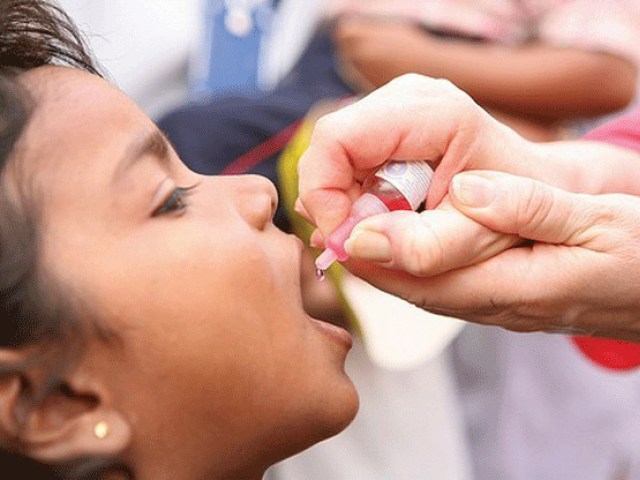Polio eradication: culture eats strategy for lunch!
Data on missed children has been misleading since long

PHOTO: FILE
Everyone wanted an easy way out. For every problem there was an almost formulaic quick-fix method rather than further probing of the malaise. After eight long years, I walked out of the Pakistan Polio Programme into my political transition, the question — why the number of children who missed polio vaccination was not decreasing in the years following successive vaccination campaigns across the country — still haunted me. The five years immersed changed the lens through which I viewed the world. The conviction to achieve the unimaginable through innovation grew stronger. I strongly believe in the words of my mentor and leader Imran Khan: ‘never shy away from getting to the core of a problem by asking the right questions and standing up to those who protect the status quo whatever the consequences’.
I was appointed as the Prime Minister’s Focal Person on Polio Eradication on October 15, 2018. I began searching for answers to the frequently asked question of why there is a spike in the number of polio cases. Over the years, the number of cases increased with each political transition. This has been traditionally justified by a massive reshuffling of the governance apparatus every time a new government took office. I beg to differ as I strongly believe that the rise in polio cases is a mere symptom of an underlying disease. The problem lies in the fudged data reports from the field regarding the number of children who were missed during the vaccination campaigns.
Six polio cases had already been reported in the country by the time I took charge. While majority of the sewage water samples were tested positive for polio virus, I was told there were no cases of infection due to the administration of vaccines.
Countries that have successfully eradicated the virus did so by vaccinating 95% of the target population. Whereas I believe Pakistan has always failed to achieve this optimum number. Data tells us that there are 40 million children under the age of 5 in Pakistan, out of which, approximately 0.3 to 0.4 million children are missed during the vaccination campaigns. This meant that the Pakistan Polio Programme was reaching more than 99% of the total targeted population and should have eradicated the virus many years ago.
We came very close to ending polio in Pakistan in 2017, but unfortunately during the low transmission season of the years 2017-18, the programme went into an early celebration. That’s where things changed for the worse. In December 2018, there was a massive outbreak in Bajaur tribal district. It was the first time that I discovered that the identification markers for vaccinated children were handed over to even those parents who had refused vaccination, just to show the numbers had been completed. I had never heard of this before. The same was the case in Bannu division which has suffered the most during this outbreak.
Although the Peshawar fiasco of April 22, 2019 did a lot of damage to the vaccination campaign, it highlighted the underlying problem — community mistrust. The fake finger markings were just a mere exemplification.
When we decided to ban punitive action against refusing parents, the number of missed children in Bannu shot up from 1,000 to 18,000; from 1,000 to 8,000 in North Waziristan; and from 1,000 to 15,000 in Lakki Marwat. The average of missed children in these districts is almost 8%, which was previously shown as less than 1% — a number large enough to cause the ongoing outbreak in the division. If global polio eradication history is to be believed, this could never have happened with just 1% missed children as reflected in the data of all previous campaigns. Data on missed children has been misleading since long. This, however, does not imply that all data lacks credibility.
I am now spearheading new initiatives: Pakistan will counter the anti-vaxxer’s campaign by launching a campaign targeting public perception in November this year. Through this we will aim to address the underlying problem of community mistrust and refusals. A 24/7 call centre is being launched to address queries and misinformation. A fruitful collaboration with Facebook helped us remove and reduce the dissemination of anti-vaccine content that contributed to the community mistrust. Some of the unnecessarily ‘intrusive’ questions are being taken out and the frequency of visits of polio teams and their supervisors is being reduced.
We are dealing with a ferocious virus; epidemiology doesn’t change overnight but I assure everyone including the donors that I will not sit idle and the results will speak for themselves.
Published in The Express Tribune, July 5th, 2019.
Like Opinion & Editorial on Facebook, follow @ETOpEd on Twitter to receive all updates on all our daily pieces.












1724319076-0/Untitled-design-(5)1724319076-0-208x130.webp)


COMMENTS
Comments are moderated and generally will be posted if they are on-topic and not abusive.
For more information, please see our Comments FAQ